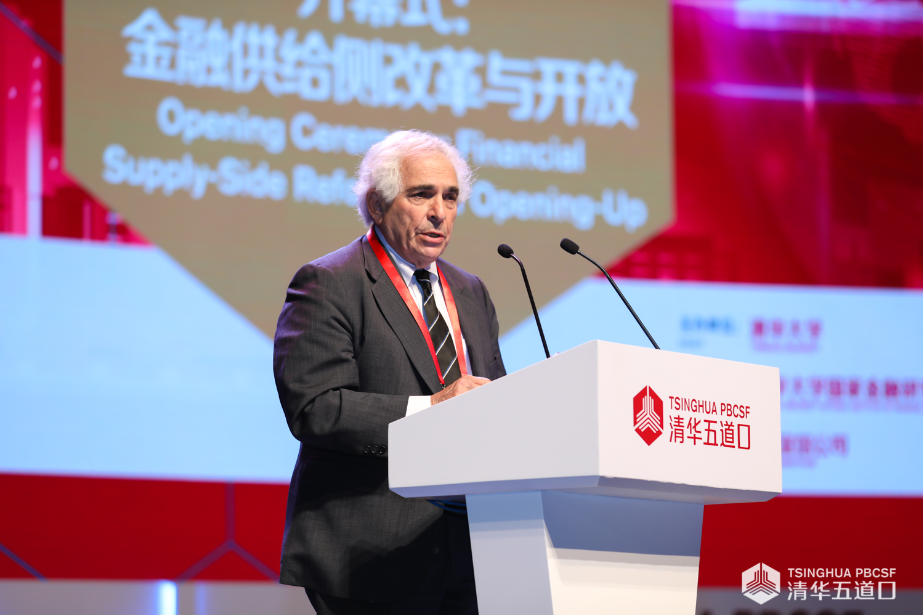
Hal S. SCOTT Emeritus Nomura Professor of International Financial Systems, Harvard Law School
This year’s annual Tsinghua PBCSF Global Finance Forum dedicated to the topic of “Financial Supply-Side Reform and Opening-Up” began with series of keynote speeches from distinguished leaders and intellectuals in global finance. Among them, Hal S. Scott, Emeritus Nomura Professor of International Financial Systems at Harvard Law School, delivered a speech about the importance of financial regulation in preventing systemic risk and stopping it from spreading in case such a risk occurs.
Professor Scott began his speech by explaining the impact of panic during financial crises. When a crisis hits economy, behavior of many actors in the financial market is driven by irrational motives, which often results in asset sale and subsequent asset value depreciation. Spread of financial panic is incredibly harmful to the economy and appropriate mechanisms must be built to prevent panic contagion.
Professor Scott then walked the audience through history of the Global Financial Crisis of 2007-2008 and of turbulence in the Chinese stock market in 2015. He says, the financial panic didn’t originate in the capital market but in the money market. To resolve the banking crisis happening at the time, the US government relied on liquidity requirements, which were significant in redeeming catastrophic financial consequences. He noted that capital injection might be insufficient to reverse the crisis contagion. Based on that, he emphasized capital liquidity is crucial to quell the spread of crisis.
“Ad-hoc provision of liquidity can damage the economy”, said the professor Scott when he underlined the importance of having a set of rules under which liquidity is provided to markets during crises. Financial regulation must follow clear procedures understood equally well by market participants and regulators, and the regulations must be adopted from private sector. “It’s the best way to ensure you have good rules”, professor Scott said.
Enforcement of financial regulation was another key point of Mr. Scott’s speech. He argues that it is critical to ensure the proportionality of penalty to a crime and financial regulation needs to acknowledge the risk of punishing innocent individuals. Although he admits that very often financial crises occur because of the human behavior, the method of fining companies for risky management practices affect some innocent shareholders, especially when the decisions were made without their knowledge. professor Scott urged financial regulation system to be cognizant of risks associated with the enforcement and unknown costs that might come with implementation of punishment mechanisms. He concluded his speech by emphasizing that the role of financial regulation is to not only prevent crisis, but also to be instrumental in containing the “fire” of crisis.